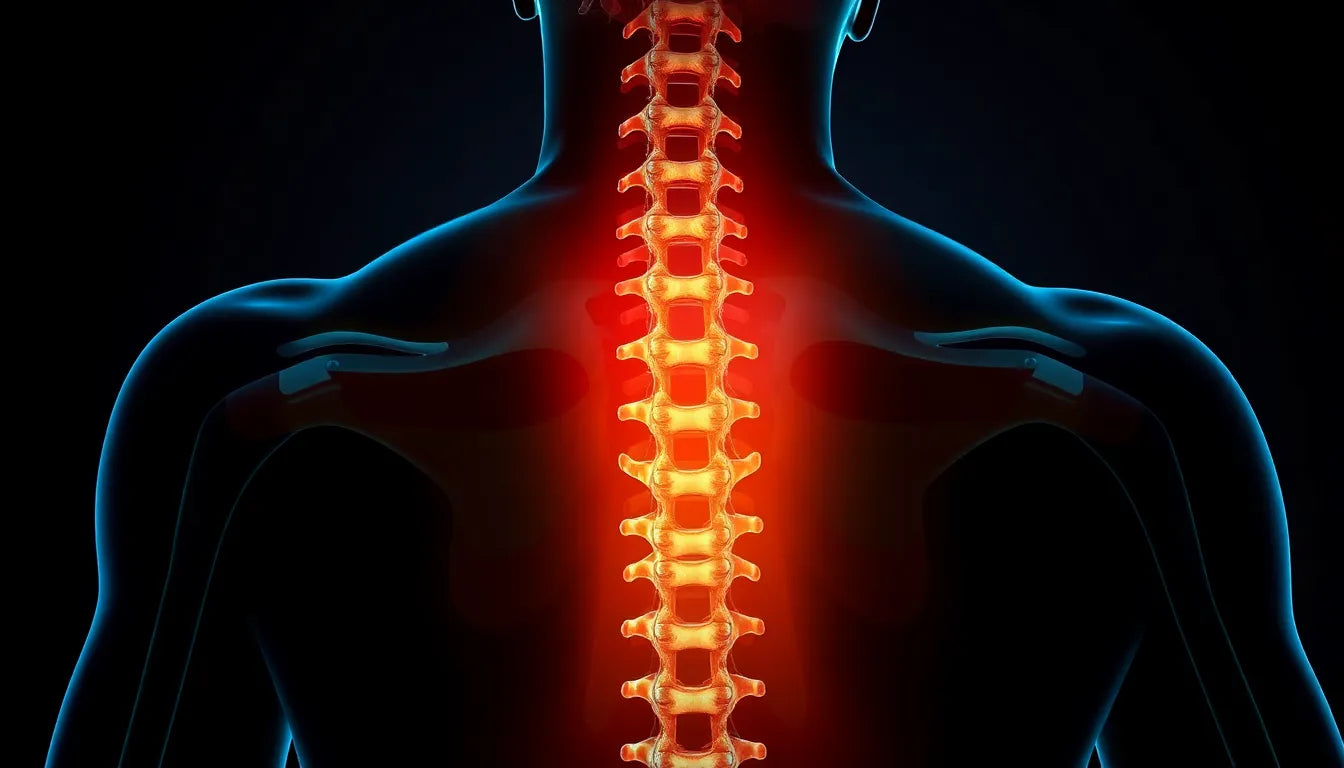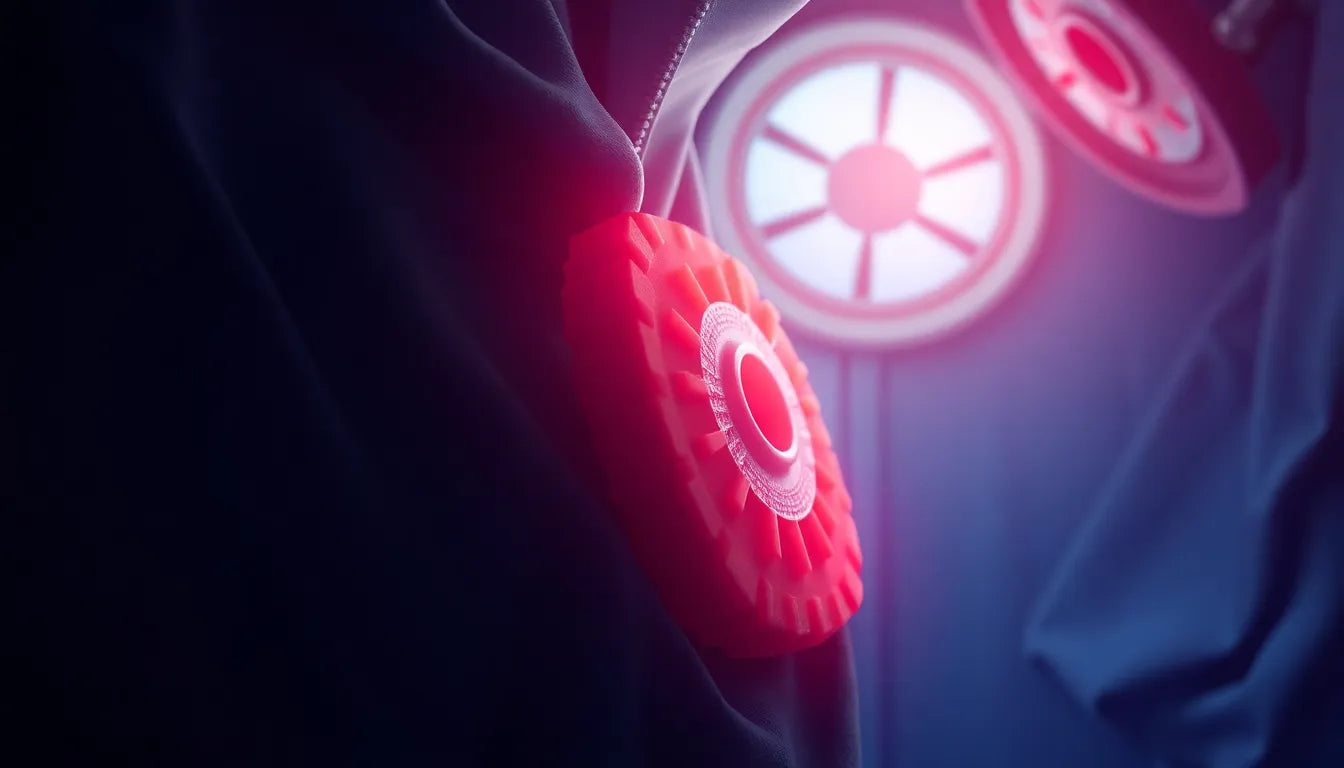Dealing with a herniated disc can be a painful and debilitating experience. This condition occurs when the soft cushion of tissue between the bones in your spine pushes out, often pressing on nerves and causing discomfort. The pain can range from mild to severe and may be accompanied by numbness, tingling, or weakness in the arms or legs. For many, managing this pain effectively is crucial to maintaining a good quality of life.
understanding herniated discs and their symptoms
A herniated disc, also known as a slipped or ruptured disc, is a common spinal condition that can lead to significant pain and discomfort. The discs in your spine act as shock absorbers, cushioning the vertebrae during daily activities. When one of these discs herniates, its inner gel-like core can leak out, irritating nearby nerves. This irritation is what typically causes the pain associated with a herniated disc.
Common symptoms of a herniated disc include sharp or burning pain that radiates down the arms or legs, numbness or tingling in the affected area, and muscle weakness. These symptoms can significantly impact daily activities and overall well-being, making effective pain management essential.
the role of medication in pain relief
Medication is often the first line of defense in managing the pain associated with a herniated disc. The right medication can help alleviate discomfort, reduce inflammation, and improve mobility, allowing individuals to engage in daily activities with less pain. However, choosing the best pain medication for a herniated disc can be complex due to the varying needs and responses of patients.
Different types of medications are available, each with its own set of benefits and potential side effects. Over-the-counter options like NSAIDs (Nonsteroidal Anti-Inflammatory Drugs) are commonly used for their ability to reduce both pain and inflammation. Prescription medications, such as muscle relaxants and nerve pain medications, may be recommended for more severe cases.
It's important to note that while medications can effectively manage symptoms, they do not cure the underlying condition. Therefore, a comprehensive approach that includes consultation with healthcare professionals is crucial for developing a personalized treatment plan that addresses both the symptoms and the root cause of the pain.
categories of medications for herniated disc pain
When it comes to managing the pain associated with a herniated disc, a variety of medication options are available. These can be broadly categorized into over-the-counter (OTC) and prescription medications, each serving specific roles in pain management.
over-the-counter (OTC) options
NSAIDs (nonsteroidal anti-inflammatory drugs)
NSAIDs such as ibuprofen, naproxen, and aspirin are often the first choice for many dealing with herniated disc pain. These medications work by reducing inflammation, which in turn helps alleviate pain. They are particularly effective because they address both the pain and the inflammatory process that contributes to the discomfort. Commonly available in tablet form, they can be taken as needed, but it is crucial to adhere to recommended dosages to avoid potential side effects such as gastrointestinal issues.
acetaminophen (tylenol)
Acetaminophen is another popular OTC option, though it differs from NSAIDs in that it primarily targets pain relief without reducing inflammation. This makes it a suitable alternative for individuals who cannot tolerate NSAIDs due to allergies or gastrointestinal concerns. While acetaminophen is effective in alleviating mild to moderate pain, it is important to follow dosage guidelines to prevent liver damage.
prescription medications
corticosteroids
For more severe cases of herniated disc pain, corticosteroids may be prescribed either orally or through injections. These medications are potent anti-inflammatories that can significantly reduce swelling and pain. However, they come with a risk of side effects, including weight gain, mood changes, and increased blood sugar levels, which necessitates careful monitoring by healthcare professionals.
muscle relaxants
Muscle relaxants such as carisoprodol and cyclobenzaprine are often prescribed to address muscle spasms that can accompany a herniated disc. By helping to relax tense muscles, these medications can provide significant relief from discomfort. However, they may cause drowsiness or dizziness, so patients should be cautious when engaging in activities that require full alertness.
nerve pain medications
Medications like gabapentin, pregabalin, and duloxetine are specifically designed to manage neuropathic pain, which is often a component of herniated disc discomfort. These medications work by altering nerve signals to reduce pain sensations. While they can be highly effective, they may also lead to side effects such as dizziness, fatigue, and weight gain.
opioids
Opioids are generally reserved for short-term use in managing severe pain that does not respond to other treatments. While effective, they carry a high risk of addiction and other side effects, making them a less favorable option for long-term pain management. Healthcare providers typically prescribe opioids with caution, emphasizing the importance of using the lowest effective dose for the shortest possible duration.
effectiveness and limitations
While medications can be highly effective in managing the symptoms of a herniated disc, they do not address the underlying condition. This means that while pain and inflammation may be reduced, the herniated disc itself remains untreated. Therefore, it is essential for patients to work closely with healthcare providers to develop a comprehensive treatment plan that may include physical therapy, lifestyle modifications, and other non-medication approaches.
Balancing the benefits and risks of medication is crucial. Clinical guidelines and studies often emphasize the importance of personalized treatment plans, as individual responses to medications can vary widely. Consulting with healthcare professionals ensures that patients receive the most appropriate and effective treatment for their specific needs.
complementary non-medication approaches
While medications play a crucial role in managing herniated disc pain, incorporating non-medication approaches can enhance overall treatment effectiveness. Physical therapy is often recommended to strengthen the muscles supporting the spine, improve flexibility, and reduce the risk of future disc issues. A physical therapist can tailor exercises to the individual's needs, focusing on core stability and posture correction.
Lifestyle changes, such as maintaining a healthy weight and practicing good ergonomics, also contribute to pain management. Weight reduction can alleviate pressure on the spine, while ergonomic adjustments, like using supportive chairs and proper lifting techniques, help prevent further strain.
Alternative treatments, including acupuncture and chiropractic care, may offer additional relief for some individuals. While evidence on their effectiveness varies, these therapies can be considered as part of a holistic approach to managing herniated disc pain.
recent research and developments
Recent studies continue to explore innovative treatments and refine existing therapies for herniated disc pain. Emerging research focuses on biologic treatments, such as platelet-rich plasma (PRP) injections, which aim to promote healing and reduce inflammation at the site of the herniation. While these treatments show promise, further studies are needed to establish their long-term efficacy and safety.
Additionally, a study published in PubMed Central highlighted that opioids, while effective for short-term pain relief, do not significantly improve long-term outcomes for lumbar disc herniation. This finding underscores the importance of exploring alternative pain management strategies and minimizing reliance on opioids.
frequently asked questions
What is the first-line treatment for herniated disc pain?
NSAIDs are commonly recommended as the first-line treatment for herniated disc pain due to their ability to reduce both pain and inflammation. They are often effective for mild to moderate symptoms and can be found over-the-counter.
Are there risks associated with long-term use of pain medications?
Yes, long-term use of pain medications can lead to various side effects, including gastrointestinal issues from NSAIDs and potential liver damage from acetaminophen. It is vital to use these medications under medical supervision and explore alternative pain management options when necessary.
When should I consider seeing a doctor about my herniated disc pain?
If you experience persistent pain, numbness, or weakness that affects your daily activities, it is important to seek medical evaluation. A healthcare professional can provide a comprehensive assessment and recommend appropriate treatment options.
Can lifestyle changes help with managing herniated disc pain?
Yes, lifestyle changes can significantly impact herniated disc pain management. Engaging in regular exercise, maintaining a healthy weight, and practicing good posture and ergonomics can help alleviate pain and prevent further injury.
What should I do if my current medication isn't effective?
If your current medication regimen is not providing adequate relief, consult with your healthcare provider. They can assess your situation and discuss alternative treatments or adjustments to your current plan to better manage your symptoms.
Sources
- Medical News Today. "Pain Medications for Herniated Disc."
- Mayo Clinic. "Herniated Disk: Diagnosis and Treatment."
- WebMD. "Herniated Disc: Symptoms, Diagnosis, and Treatment."
- Axion Spine & Neurosurgery. "Best Painkillers for a Herniated Disc."
- Sciatica.com. "Treatment Options for Herniated Discs."
- PubMed Central. "Study on Opioid Pain Medication Use for Herniated Discs."
- NYU Langone Health. "Nonsurgical Treatments for Herniated Disc."



